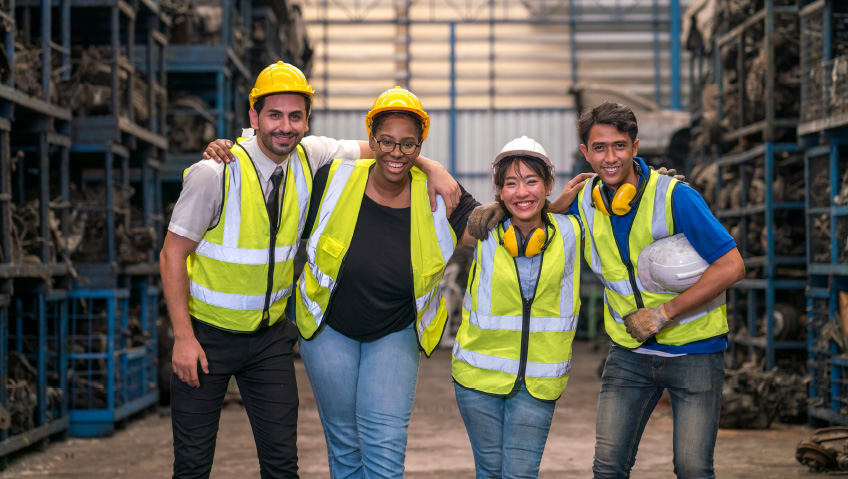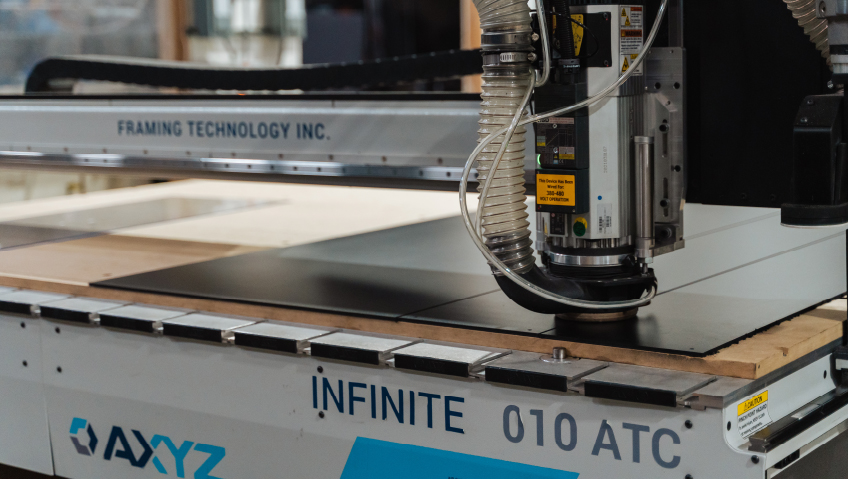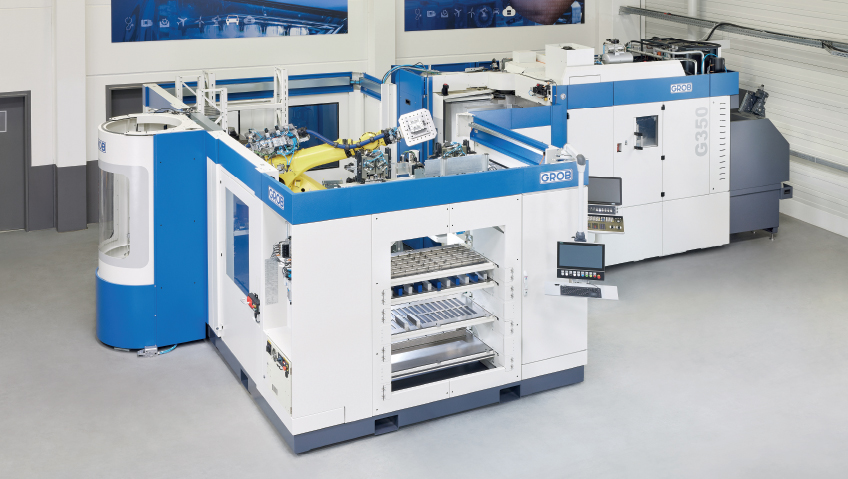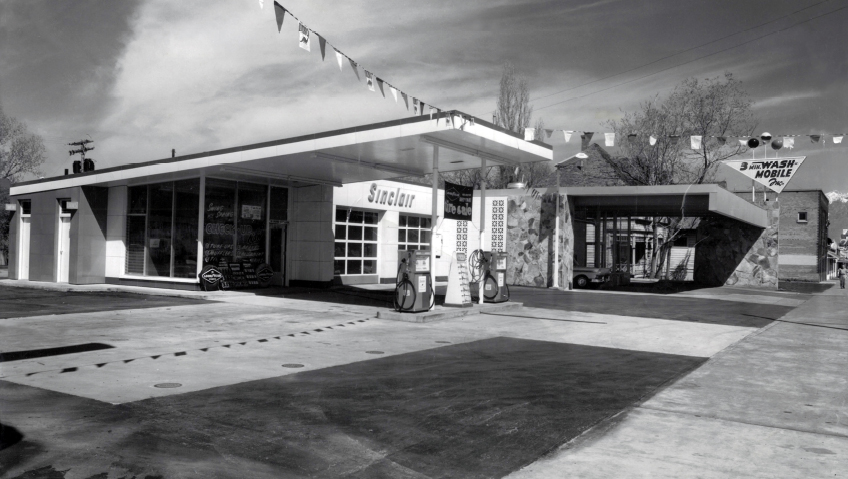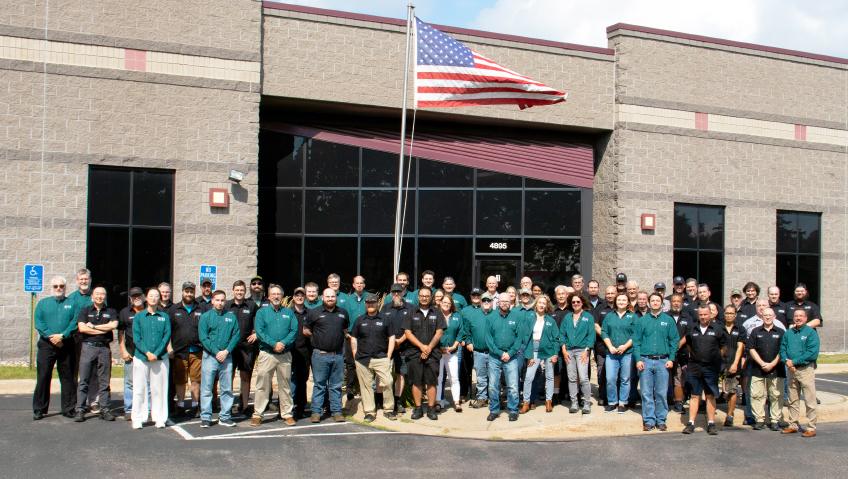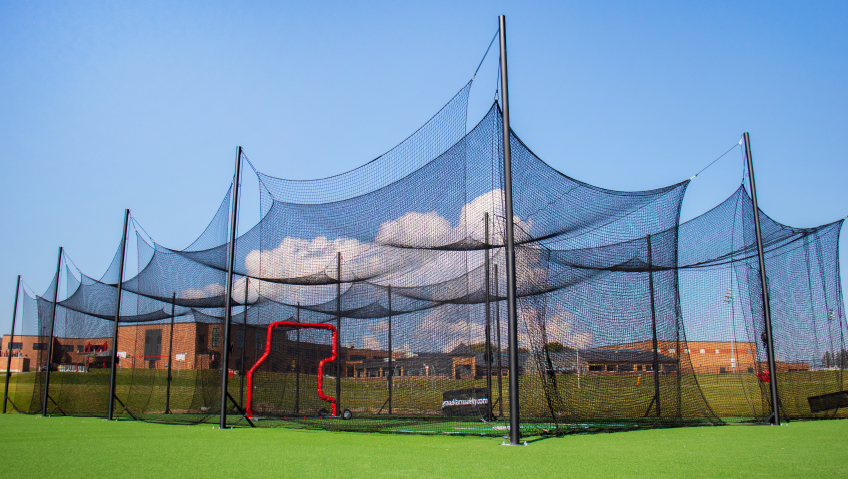Founded on the principles of quality, innovation, community, and safety, Vidir Solutions has cultured an environment that’s inclusive and supportive to each and every worker in its workforce. It is an approach that not only leads to high employee satisfaction but helps produce the greatest possible product, built on innovation and creativity.
Based in Lebanon, Pennsylvania, and both Arborg and Teulon, Manitoba, Vidir is a leading expert in vertical motorized inventory management, material handling, storage carousels, and display solutions, providing the manufacturing, warehousing, retail, medical, construction, automotive, government, and printing sectors with an incredibly flexible array of carousels.
And it is the company’s attention to its staff and its clients in its quest for the best product possible that has also led to it being named one of Manitoba’s Top Employers for the second year in a row, a remarkable and well-earned achievement.
About the people
“For us, it’s really about the people and not so much about the designation itself,” says Carissa Rempel, Program Manager, Human Resources and Public Relations. “It’s an affirmation of the fact that we care deeply about our people, and we want Vidir to be a great place to work and a place where it’s different from the average workplace, especially in manufacturing.”
The company also strives to create an environment that is holistic, supporting the employee as a person while also caring about their family.
“Work is a huge aspect of our time and our lives, so for us, it’s important that it’s a positive environment and that it helps with other aspects of our lives as well,” Rempel says.
This year Vidir was also designated one of Canada’s Top Small and Medium Business Employers, an award encompassing businesses across all of Canada. Of those considered, Vidir was one of only two product manufacturers to receive the designation.
“This is really special because manufacturing is typically a more difficult environment for those types of things,” Rempel says. “A lot of the companies who win those types of designations are places like software companies or tech companies, places where people don’t have to work in a production environment and can maybe work from home easily.”
Vidir prides itself on being family-focused and oriented and is committed to a solid work-life balance for everyone, something that employees not only notice but greatly appreciate.
“We encourage people to talk to us about their family situation,” says Rempel. “Especially in the case of women, whom we know to do 75 percent of the world’s unpaid care work—whether caring for children, elderly parents, or someone in the family who has an illness or disability. We’re passionate about making sure that that doesn’t hold women back in their careers, especially in the manufacturing world.”
This involves taking a more individualized approach with employees to ensure each person at the company experiences a personal “best-case scenario.” Vidir also hosts numerous family-friendly events throughout the year including taking over an entire theatre with popcorn, drinks, and snacks on the house, and a big pool party in the summer.
The company has also just upped its maternity leave top-up, which is now at 95 percent for 17 weeks. “We’re always looking at how to make the workplace not just accessible, but also empowering for women so they can continue to grow in their careers,” Rempel shares.
Another admirable goal includes increasing the number of women in its workforce by two percent every year. Right now it hovers around the national average—27 to 28 percent—but Vidir is determined to better that.
Manitoba is the perfect place to do that, Rempel adds, with its great central location and beautiful environment. Vidir also has a strong presence in the U.S.; however, none of its sites there are situated in a major urban centre. This is for a number of reasons, starting with that all-important work-life balance.
Contributing to quality of life
“We find that for employees it’s better to not live right in the urban centre because typically they can get housing for a lot less [outside the city],” says Rempel. “We try to have our locations in small communities where housing prices are cheaper and rent is cheaper, which allows employees to get ahead quicker.”
It’s safer, too, she adds, with lower crime resulting in less worry about family and children. “We’re also not fighting traffic, which we all know is miserable. You don’t have the same amount of pollution—whether that’s air, light, or noise—and you’re able to get out in nature.”
Both of the company’s Manitoba locations are situated right next to fields and forests, allowing employees to walk outdoors even on a lunch break, which benefits both their mental and physical health.
“Both our locations are also about 15 minutes from the lake, which allows you to enjoy that aspect as well,” Rempel says. “It means on the weekends, people can fish, be at the beach, be out on the lake and just be out in nature.”
Giving back
Being located in smaller communities also means that when Vidir gives back, it’s all the more impactful.
“Manitoba as a province is known to be highly philanthropic and Manitobans, in general, are known to be extremely charitable,” Rempel says. “For us, one of the things that’s important is giving back, whether that’s locally, provincially, or globally.”
The company walks the talk with a program where it matches employee donations to charity. “Because we’re located in smaller centres, it gives us the ability to make a profound impact on those communities. We’re able to give a lot to programs in those areas that may not otherwise be able to run, and we’re able to do a lot of volunteer work.”
Most of the company’s employees are also active volunteers, which Vidir fully supports. “It’s a huge priority for us and it reflects through to our products,” Rempel says, noting that the company’s mission statement is “to make the world’s products safely accessible.” She explains that, “our secondary mission is helping you do what you do best. So whether that’s our customers or our employees, it’s all-inclusive.”
The company also adheres to the Vidir HEROICS Code of Conduct, a shared set of Vidir values that influence choices and deeds. The acronym is composed of: Hard work wins; Education elevates excellence; Raise others up; Own your quality; Innovation brings opportunity; Community creates meaning; and Safety produces security.
“For us, ‘Own your quality’ is part of a holistic approach,” says Rempel. “From my perspective in HR, owning the quality of the way we treat our employees will reflect to the employees owning the quality of how they produce the machine, which will reflect on the quality of our products.”
HR excellence
Along with Vidir’s ongoing commitment to its employees and clients, its work was also recently recognized with the prestigious CPHR Manitoba Unity Award for Diversity and Inclusion in the Workplace, a great achievement.
A prominent yearly event, the HR Excellence Awards is a celebration of the Human Resources profession in Manitoba and a chance to raise awareness of the field while highlighting the successes of its members and the HR community. These prizes honour companies in Manitoba that have used human resources to help them achieve their objectives and have effectively developed and implemented related projects that have brought about significant and demonstrable advantages to their organization while showing leadership in HR programs or services.
“It was so special to even be a finalist for that award,” says Rempel. “Some of the other places that were finalists included the City of Winnipeg, which is a pretty big entity to go up against. So to win that award was just truly humbling. It’s been so important to put a focus on women, newcomers, and diverse cultures and diversity in race and religion. To be acknowledged for that was just amazing.”
Along with Vidir’s ongoing dedication to women in the workplace, the company also stood out in terms of diversity and inclusion by focusing on hiring newcomers and assisting them with their transition, both with finding housing or rent-to-own options and helping them get established in the community.
Learning opportunity
In the last year, Vidir has also implemented a program of English language classes at work with great success.
“We’re so proud of it,” says Rempel of the privately taught classes paid for by the company. “In the classes they focus on language but also on learning about Manitoba, about Canadian culture, about Canadian workplace expectations—all the things that are new for someone who’s coming from a different background.”
At the moment, the classes are engaged in a unit focusing on Manitoba summers, so participants are learning about camping in Manitoba and the enjoyment of its beautiful lakes and provincial parks.
“A lot of them are getting out there and exploring it, which is awesome in terms of also keeping people in the province,” Rempel says. “The challenge is that they’ll come to Manitoba initially, but then relocate to Toronto or Vancouver where they may have more people from their culture and it’s a little bit more like what they’re used to. We find that if you can connect people to the community and the local area, then it becomes home.”
As Vidir continues to embrace the principles of innovation and community, its commitment to developing and prospering in smaller rural towns has over the years helped to foster a close-knit workplace culture and allowed the business to significantly improve the local areas in which it operates. And while there are always challenges to be addressed, Vidir continues to adapt and overcome.
“I think it’s better to focus on our accomplishments because they came out of the challenges,” says Rempel. “The challenges were, how do we increase our workforce because Manitoba doesn’t have a huge population? How do we increase the availability of applicants? Then, we found we weren’t looking at women enough, so we put a focus on that, and we weren’t putting enough emphasis on newcomers, so we put a focus on that,” she shares.
“In a way, our accomplishments really are a result of our challenges, which is how all companies should be doing it—looking at where they may not be spending enough time and then making it better.”

